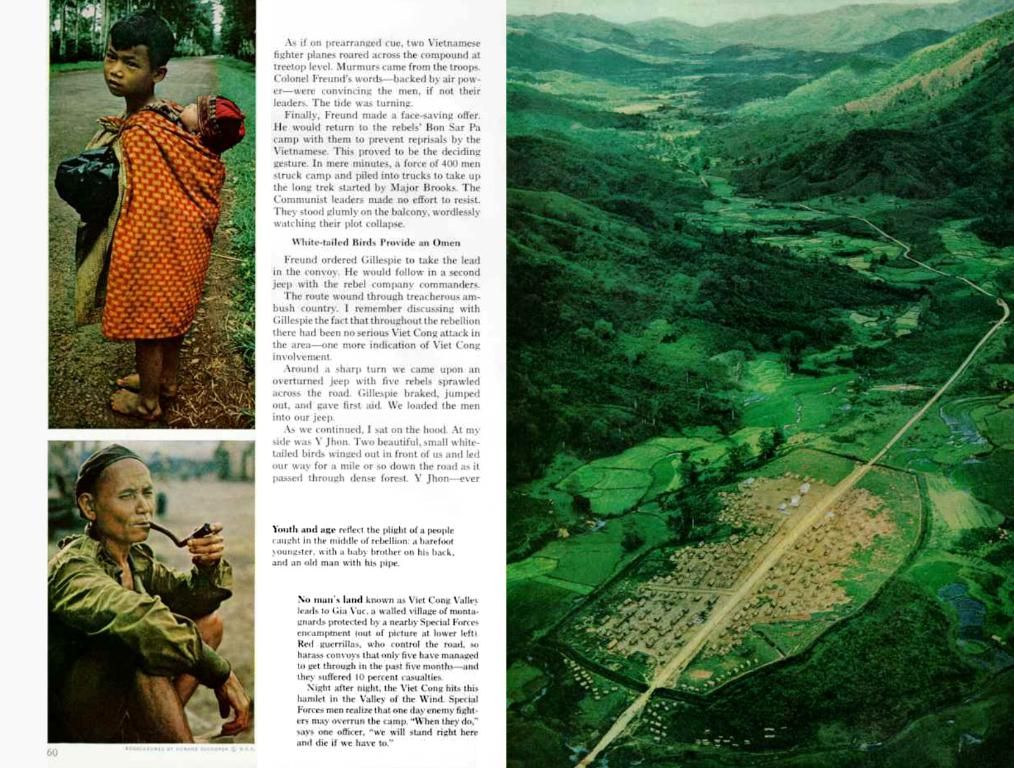Virtual Gold Fever Sweeps World of Warcraft's Underground Economy
The Underground Economy of World of Warcraft: A Billion-Dollar Business And Ethical Dilemma
World of Warcraft's (WoW) virtual economy has transformed into a booming, multi-billion dollar industry, challenging Blizzard's official system and raising moral dilemmas for players.
This covert market enables real-world transactions for in-game assets, such as gold, high-value items, and entire accounts. Despite Blizzard's persistent efforts to curb these activities, the black market persists, estimated to generate billions in revenue.
The Lure of the Underground Market
The underground market's appeal centers on convenience. Many players seek shortcuts to bypass laborious activities like farming gold or leveling up. External websites offer services such as ConquestCapped's Liberation of Undermine raid boost, allowing players to advance swiftly without the usual grind.
Players in the Black Market
Multiple players participate in WoW's underground economy:
- Gold Farmers: Individuals who spend countless hours amassing in-game currency2. Buyers: Those seeking quick solutions without investing time3. Third-party platforms: Websites that facilitate transactions between buyers and sellers4. Power Levelers: Service providers who offer character advancement5. Sellers: Specialists in trading virtual goods and services
Economical Waves
The influx of illegally obtained gold and items disturbs WoW's delicately balanced economy. This disruption leads to inflation, skewing item values and making it challenging for typical players to compete. The 'pay-to-win' model creates an unbalanced playing field, where external wealth translates to in-game dominance.
Risks and Penalties
Engaging in the black market comes with substantial risks. Blizzard actively combats these activities, and players caught engaging in real-money transactions face severe consequences, such as account bans or suspension of services. Moreover, the practice compromises the core gaming experience, decreasing the satisfaction derived from earning rewards through genuine play.
The Path of Integrity
For long-term enjoyment, players are advised to uphold fair play. Although the temptation of rapid progress is strong, the risks outweigh the benefits. Developing skills, engaging in events, and cultivating community relationships offer more meaningful experiences than shortcuts.
Ultimately, the intrinsic value of World of Warcraft lies in the adventure of character development and the sense of accomplishment that comes from legitimate achievements. As with any gambling, the fun lies in the challenge, not in circumventing the rules.
Enrichment Insights:
- On anniversary realms and other servers, consumables like Black Lotus (120g) and Wisdom Flasks (200g) have reached exorbitant prices, rendering them inaccessible for players who cannot engage in intensive farming or gold purchases. This creates a cycle where casual players struggle to afford raid necessities while gold buyers distort market dynamics.
- With GDKP (gold distribution) raids banned, players report increased reliance on gold-buying to bypass time-gated farming, exacerbating wealth inequality between those purchasing gold and those earning it legitimately.
- High consumable costs force players to prioritize farming over gameplay, effectively turning WoW into a "second unpaid job." Mechanics in raids like Blackwing Lair become secondary to the economic pressure to boost DPS with expensive consumables, even when strategy is more crucial.
- Bots monopolize resource farming (e.g., herbs, ores), further inflating prices and causing frustration among players who cannot compete with automated systems.
- Proposed solutions include introducing vendor currencies (e.g., "tarnished coins") to stabilize essential item prices, reducing reliance on the player-driven auction house.
- Blizzard's awareness of systemic economic issues is reflected in their emphasis on a controlled "decoration economy" in recent house updates, aimed at avoiding inflation.
- The postponement of systems like the "dinar" currency—meant to let players target specific raid rewards—leaves a void where gold-buying remains the primary means to acquire high-demand items.
- Frustration among legitimate players and account bans or suspension for gold buyers may destabilize server populations, causing community division.
- An overemphasis on consumable-driven performance risks overshadowing encounter design, as seen in debates about whether raids like Blackwing Lair are strategy checks rather than gear/consumable checks.
- Gold farmers, illegally earning in-game currency through countless hours of farming, contribute to an unbalanced economy by causing inflation, distorting item values, and creating a pay-to-win model in World of Warcraft.
- Power levelers, offering character advancement services on third-party platforms, enable buyers to bypass laborious activities such as farming gold or leveling up, thereby disrupting the gaming experience meant for genuine play.
- Despite the risks of account bans or suspension for engaging in real-money transactions, some players continue to participate in World of Warcraft's underground economy to reap the benefits of quick progress, even though it compromises their long-term enjoyment and the satisfaction derived from earning rewards through legitimate play.




